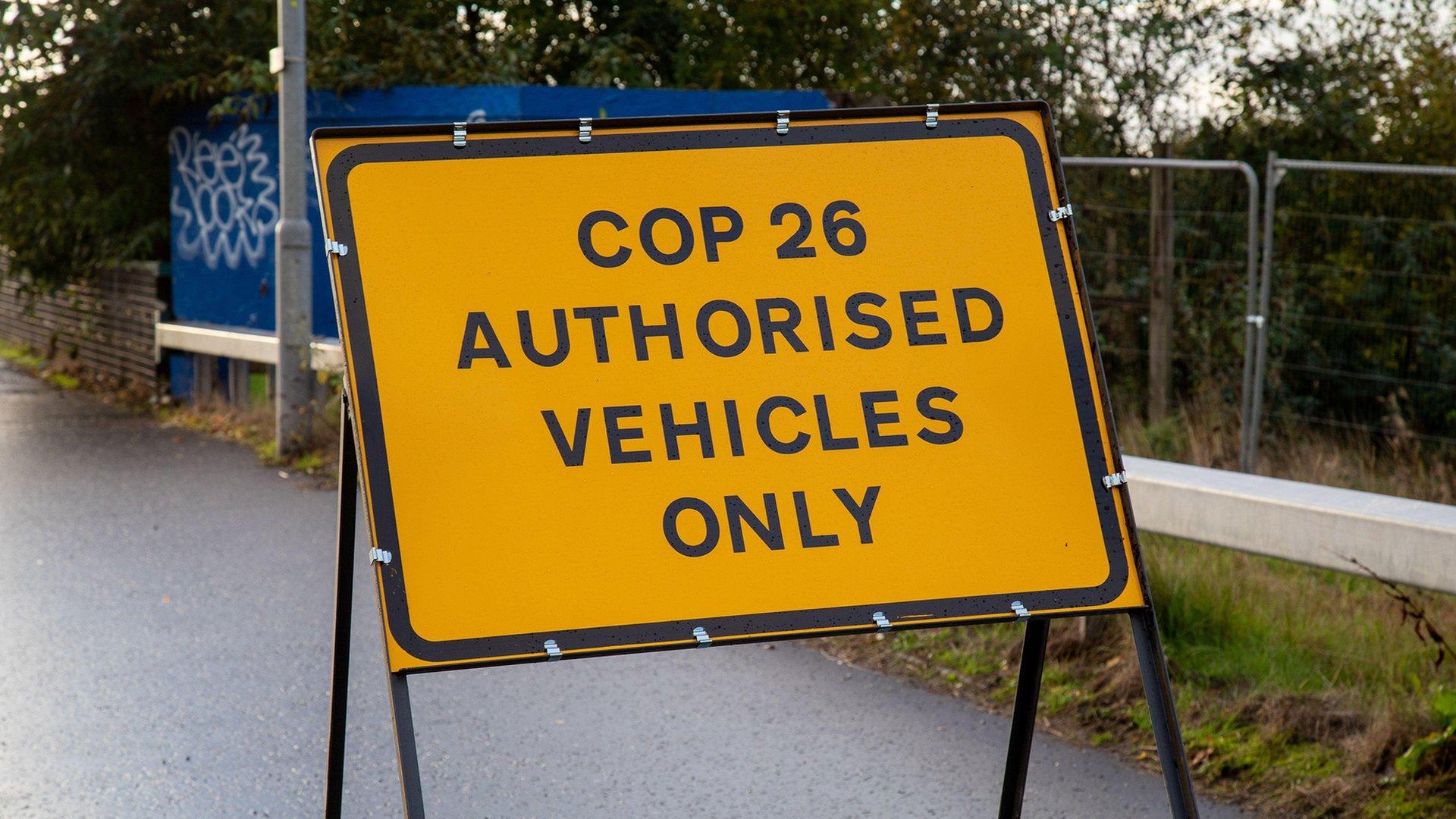Glaswegians greet COP26 with pessimism and hope
- Published
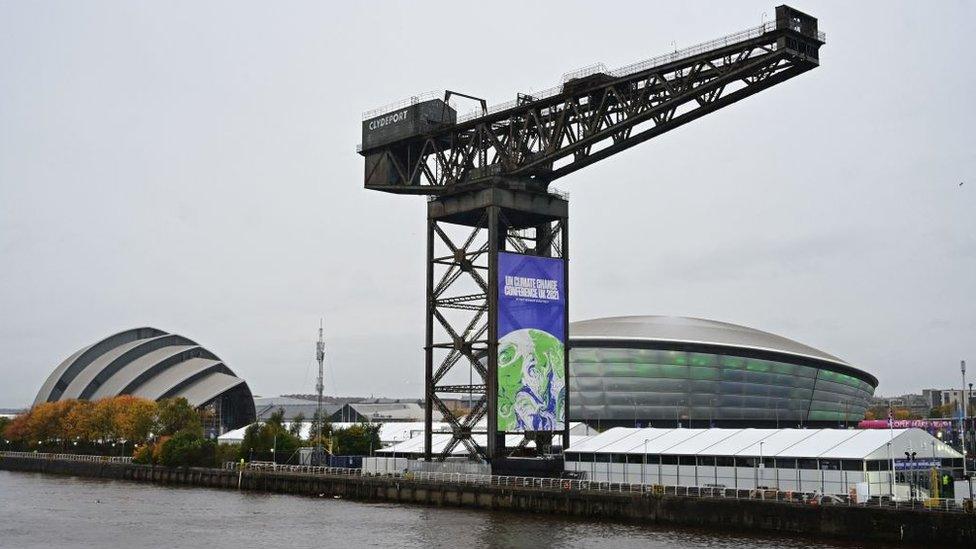
COP26 opened at the Scottish Exhibition Campus on a dreich Sunday morning
After months of anticipation, the crucial COP26 climate conference in Glasgow has finally begun.
Delegates from around the world have arrived at the Scottish Exhibition Campus - now official UN territory known as the "blue zone" - to join negotiations intended to avoid a climate catastrophe.
While the speeches began inside the main arena, BBC Scotland spoke to people on the streets outside about how the summit was affecting them.

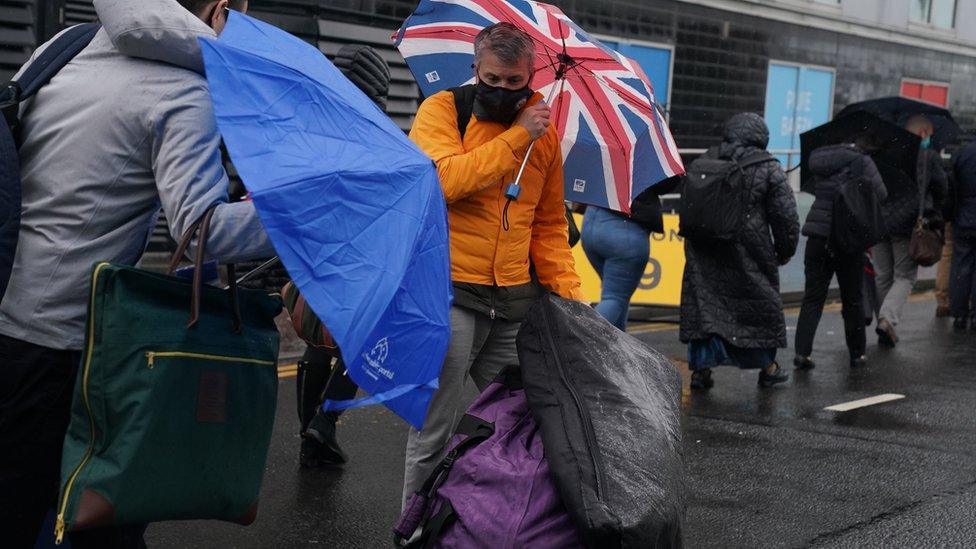
Delegates battled the weather as they arrived at the summit
COP26 delegates have been greeted with an authentic Glasgow welcome on day one of the summit - the rain is pouring down.
Traffic in the city centre is made up mainly of the city's fleet of electric buses brought in to service the conference and police vans from every corner of the UK.
Police are everywhere - on foot, in cars, vans and motorcycles.
I spot several vans from Lancashire and Merseyside police, their coloured livery standing out against the usual white of the Police Scotland cars we are used to.
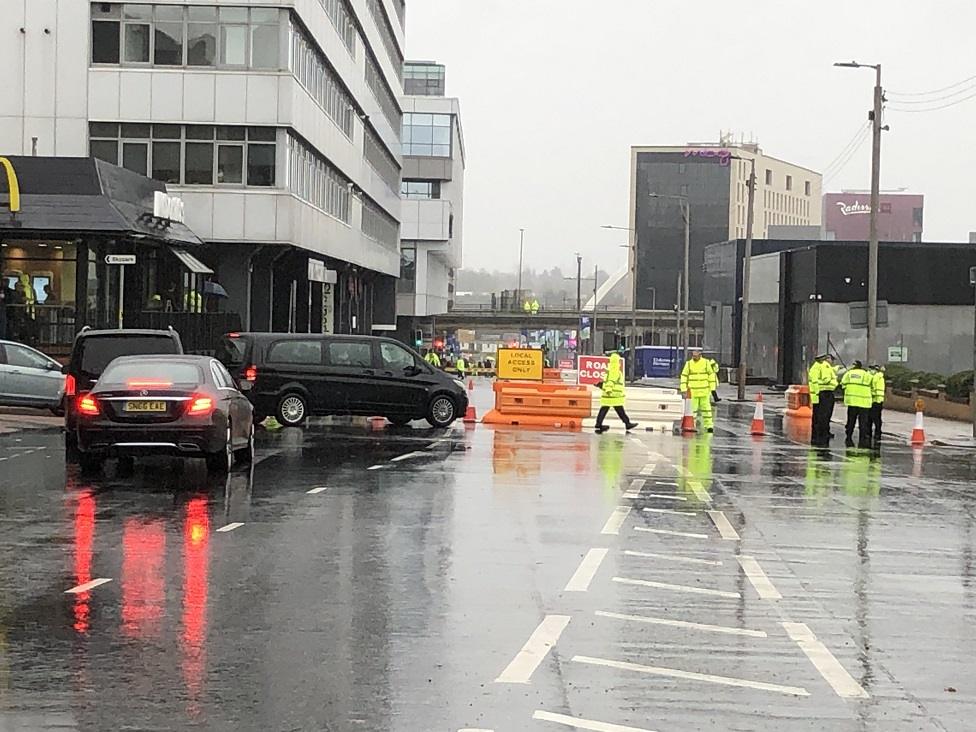
Traffic restrictions are in place around the climate summit venue
Early climate campaigners make their way along the river towards the day's demonstration at Glasgow Green with damp flags and the city's COP26 volunteers try to remain cheery in their sodden bobble hats.
Blue-lanyarded delegates are being dropped off at the squinty bridge to walk over the river to the conference venue.
I bump into visitors from Gabon in central Africa.
They arrived in the city less than 24 hours ago but are ready to make their case passionately.
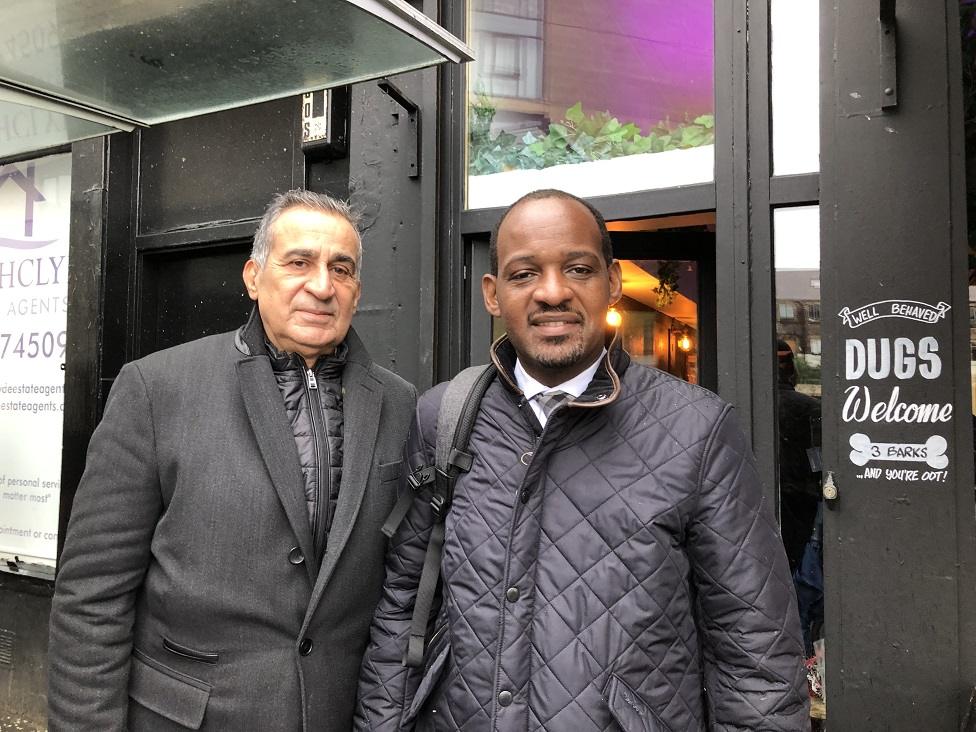
Hadi Ghossein and Ghislain Moussavou, from Gabon, are in Glasgow for the conference
Ghislain Moussavou is the director general of the government's forestry commission. He is here with a private contractor Hadi Ghossein.
The two have just had breakfast in a local café and are ready to go into the venue and fight their corner.
Mr Moussavou says: "We are here to speak up for Africa. We are doing a lot to combat the effects of climate change and we bear a lot of its impact."
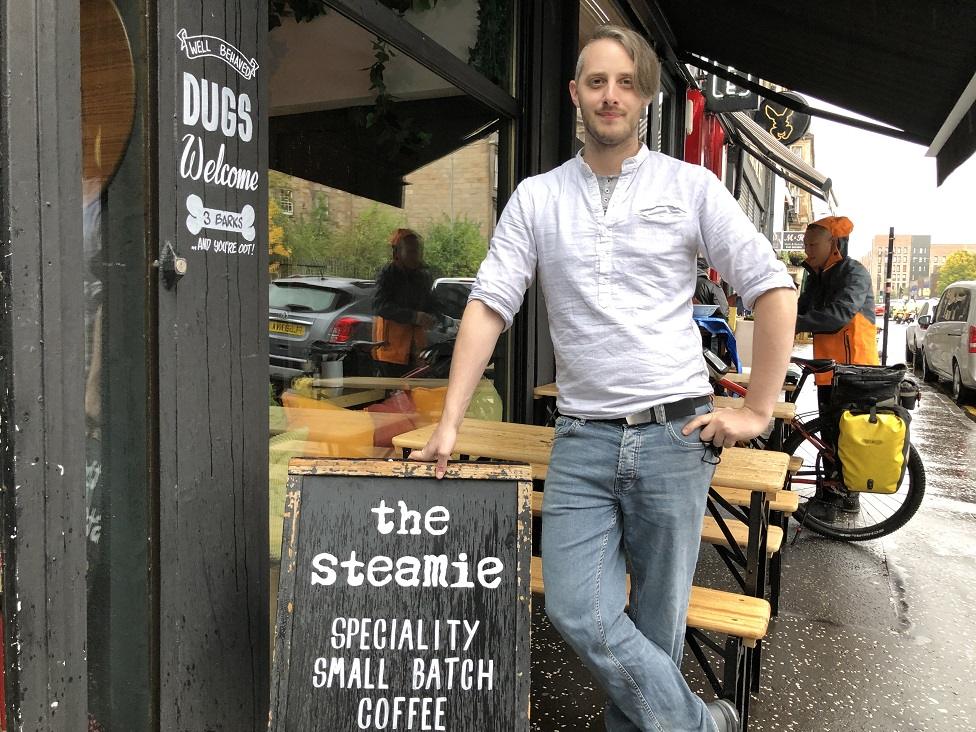
Ben Shakespeare Ferguson said Sunday had been "chaos"
Ben Shakespeare Ferguson runs The Steamie café in Finnieston, one of the areas closest to the COP26 venue.
He was concerned on Saturday when the café was empty and thinks people stayed away thinking the main road was closed.
Sunday has been "chaos" so far.
"We've had a lot of diplomats shouting on phones and people coming in asking for 'a table of nine' when the maximum we can do is four," he said. "But everyone has been nice so far.
"It's the last chance to sort climate change and we are at a tipping point so we can put up with a bit of inconvenience."
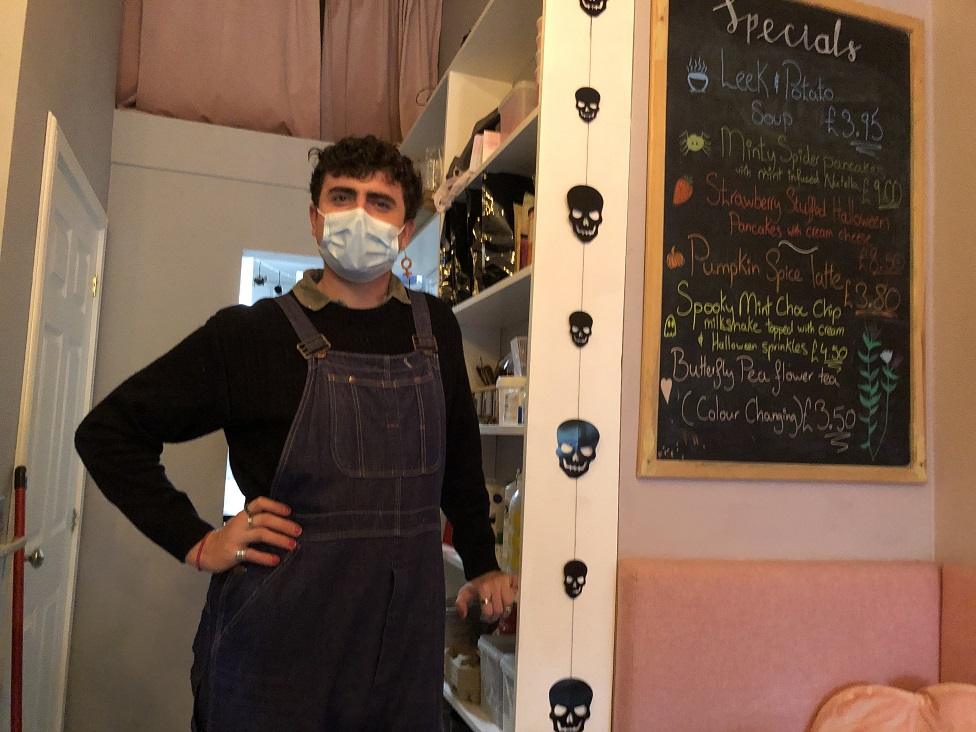
Ewan Duncan feels pessimistic about the climate conference
Four doors down, it's a different story at Locker 1012. Student Ewan Duncan who works there has not come across any delegates yet but has felt the effects of the restrictions on the area.
"We have been given instructions from the council on how to put our bins out, to try to make the city look nicer," he said.
"I feel a bit pessimistic about it. The conference feels like too little too late to be honest.
"I don't think it will do much for Glasgow. All eyes are on Glasgow and they have tried to make the city look nice. They have done things like put 4G in the subway, but I'm not sure if they will take that away when COP26 is over.
"It seems like they are trying to polish up the city and I don't think they need to do that."
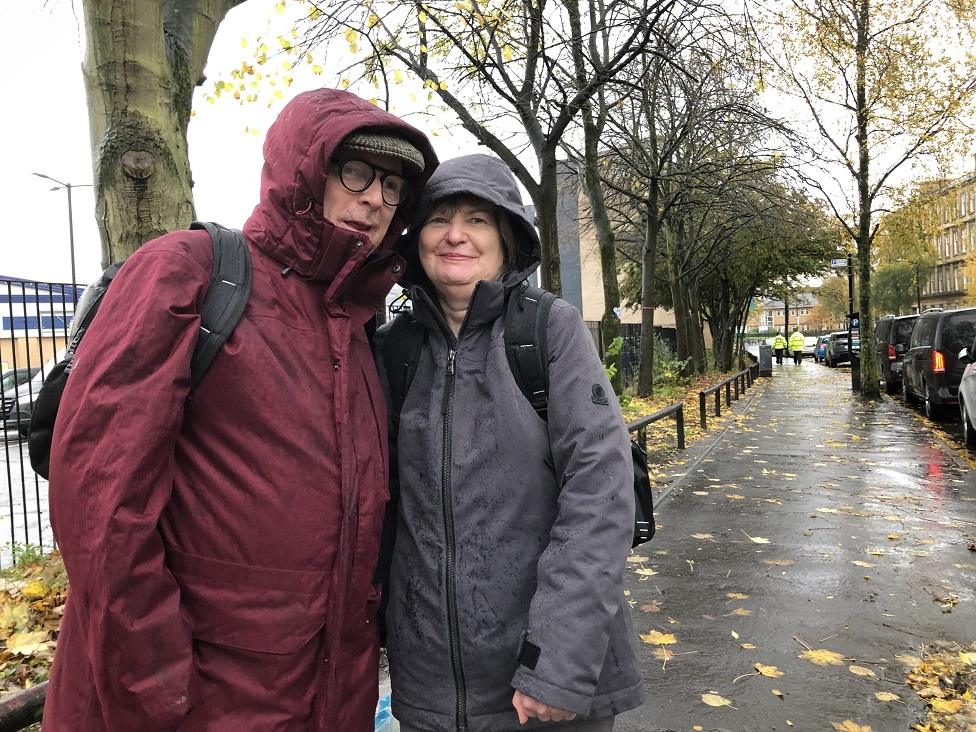
Local residents David Watt and Carey Leitch said they feel "under siege"
The eyes of the world may be on this Scottish city, but not everyone here is happy to be hosting the summit.
St Vincent Crescent is one of the closest residential streets to the Scottish Events Campus but residents David Watt and Carey Leitch don't care who is jetting in - they feel under siege by the heavy police presence.
They find it disconcerting that there are so many police officers around.
"I know why they are doing it, but I don't want to live in a place that needs all those police," said Carey.
David added: "I understand the council wants to put Glasgow further on the map, but at the same time there are so many other events that haven't happened. At the moment, it's like living in a police state."
"And why isn't it online? said Carey. "I hope it isn't a super-spreading event."
David agreed: "We've just recorded the highest Covid numbers in Britain since the start of the pandemic and now we are inviting people from all over the world. And it will put a strain on our NHS. There are thousands of people here and certainly some of those will need medical treatment at some point."
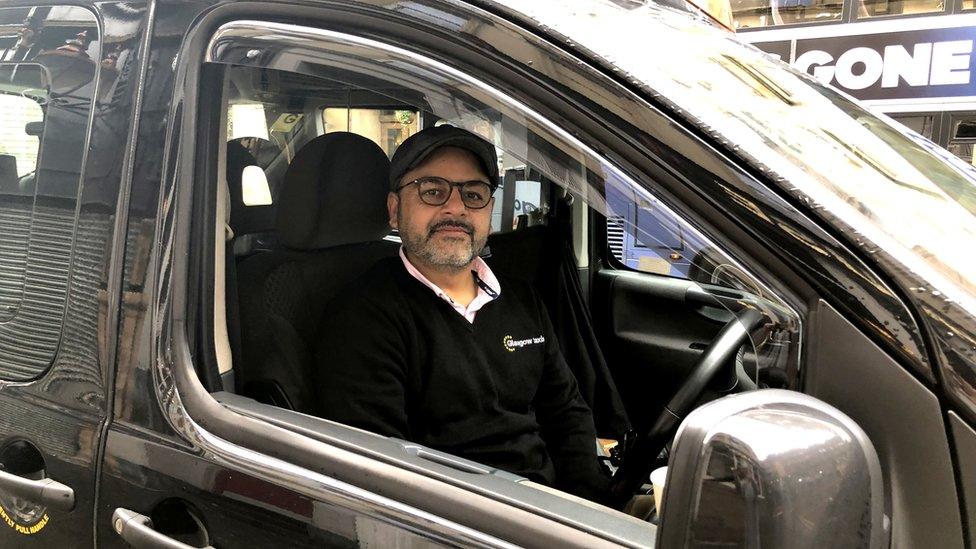
Cabbie Asif Yousaf will be working nine to 10 hours a day during the summit
Further into the city centre, Glasgow's cabbies are hoping for a boost from the city's host status.
Asif Yousaf has been asked by his firm Glasgow Taxis to work extra hours during the summit.
"We have a contract for all the hotels," he tells the BBC. "They keep calling us to go back and forward to the SEC and The Hydro.
"We have been asked to work more hours because a lot of drivers have left since the Covid pandemic. I will probably be working nine or 10 hours a day the whole way through.
"This is a very good thing for us, it will boost the economy and I want to make the most of it."
Road closures
Jim Flanaghan is sitting at the taxi rank outside Central Station. He has just been chatting to some other drivers waiting for customers. So far it's been quiet. He is a self-employed black cab driver and is hoping to be busy during COP26.
"More roads are closed that I anticipated. Next week will be the biggest test. There is the big protest march and we don't know how that will affect our work."
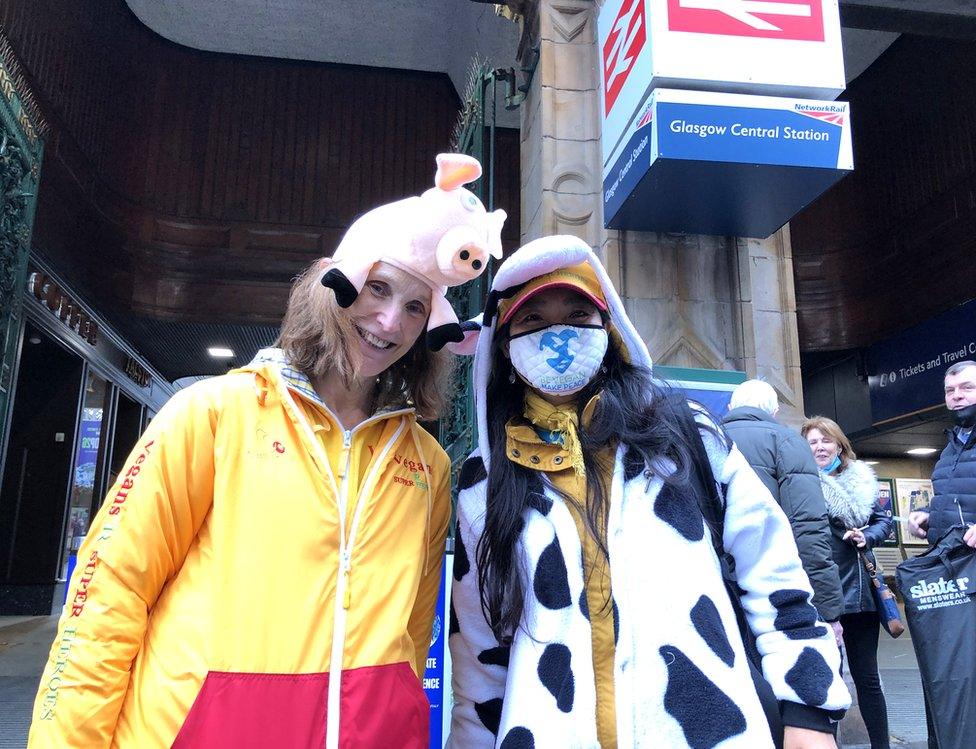
Catalayna and Priya are spreading their vegan environmental message.
Across the road at the entrance to the station, two women are talking to people and handing out literature. One is dressed in a cow-print onesie and the other is in a pink pig hat.
Catalayna and Priya say they will be spreading their message throughout the city, as well as holding a press conference in the blue zone at the conference on 4 November with British actor and animal activist Peter Egan.
Catalayna says she wants to highlight the amount of greenhouse gas emissions from animal agriculture. "Everybody can be vegan," she said.
"It's a global conference so all the countries are represented here and it is easy to spend the message to the whole world.
Priya has enjoyed a warm welcome: "I love Glasgow. I find the people so friendly."
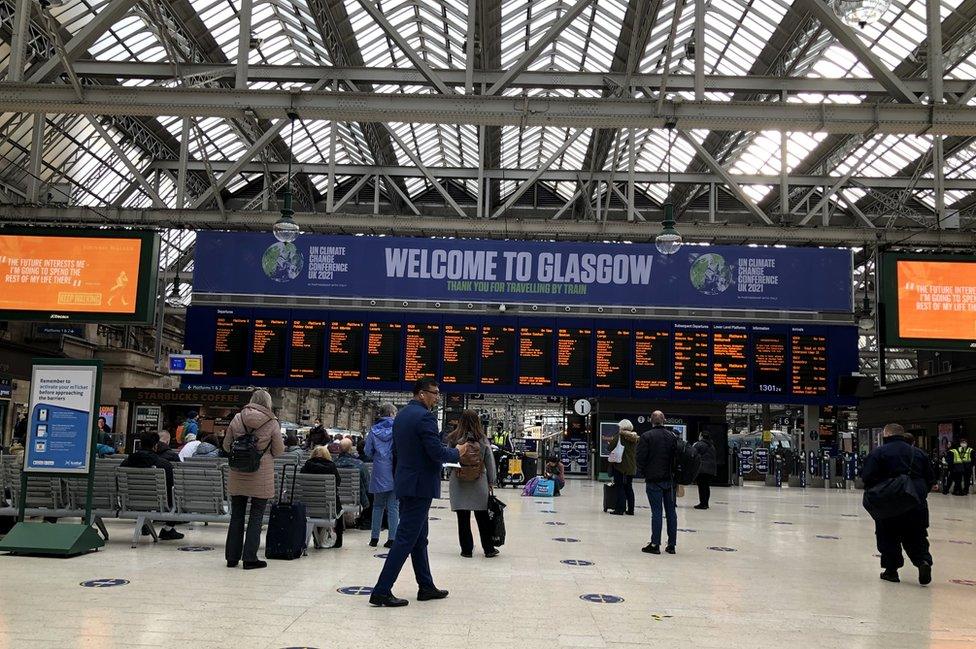
Trains have been unable to complete their journeys to Glasgow's Central Station
Inside the station, staff are still talking about the arrival of Greta Thunberg on Saturday.
The Swedish activist was mobbed as she arrived by train from London Euston.
One of the station workers tells me: "Word got out when she would be coming in and media and a large number of activists turned up. She is like a rock star to them."
Ms Thunberg got in just in time, as staff are concerned that arrivals for the summit have been hit by delays and cancellation.
Trains are unable to run on the main lines from London to Scotland because of damage to overhead lines.

The COP26 global climate summit in Glasgow in November is seen as crucial if climate change is to be brought under control. Almost 200 countries are being asked for their plans to cut emissions, and it could lead to major changes to our everyday lives.

- Published31 October 2021
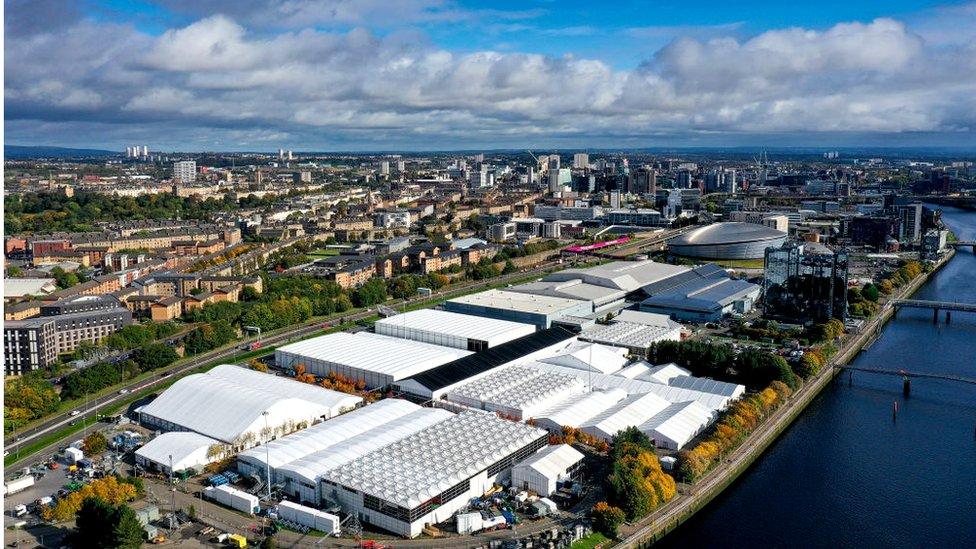
- Published31 October 2021
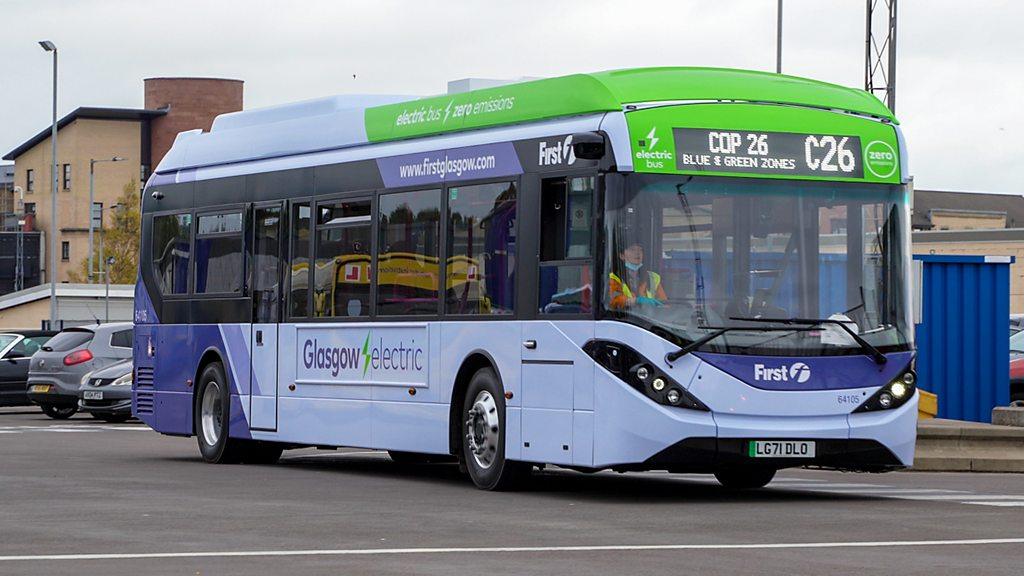
- Published25 October 2021
